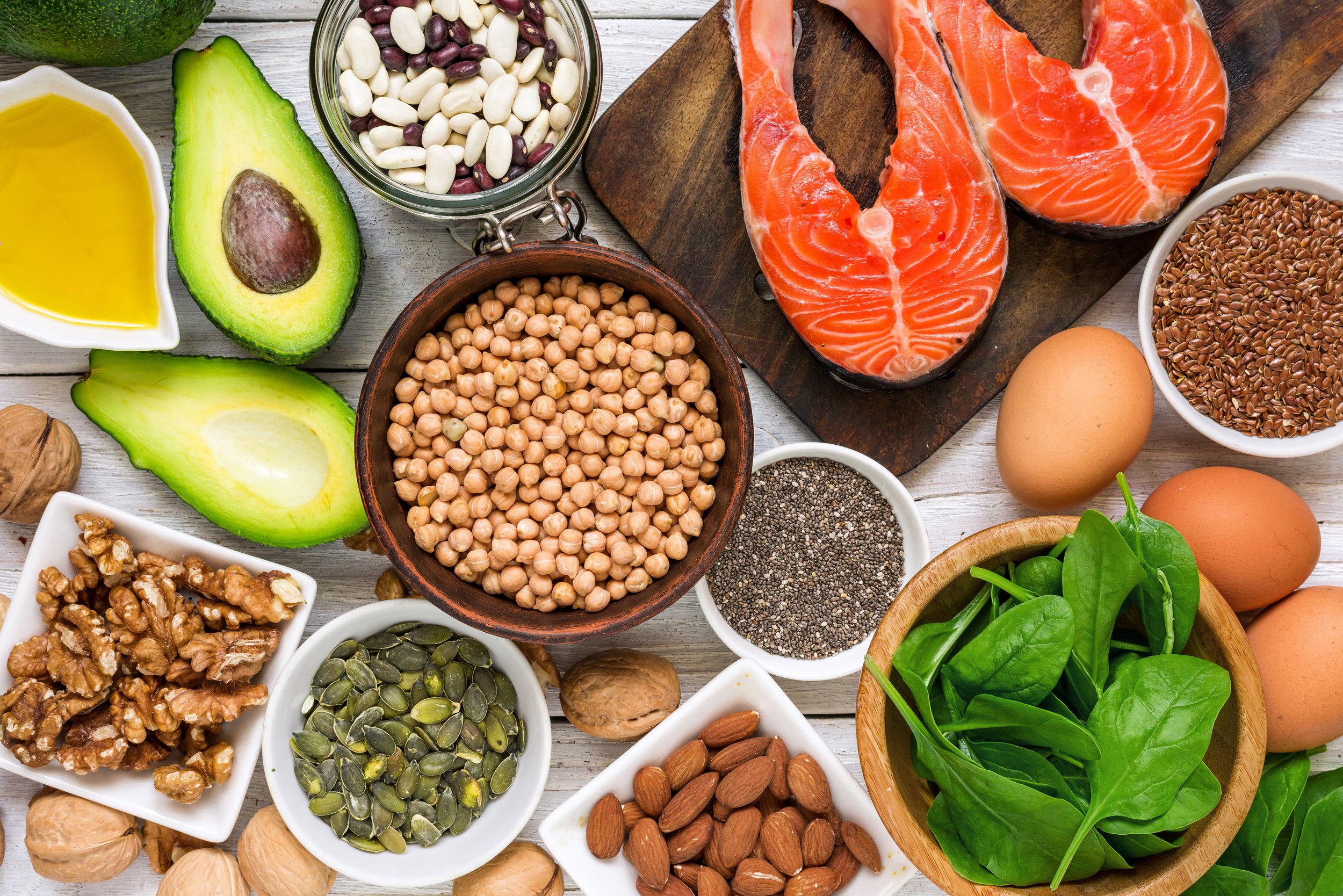Can food make you happier?
If you ask the average person if there’s a link between food and mood, they’ll likely be inclined to agree. Who doesn’t feel cheered up by a delicious meal waiting for them at the end of a long day?
But the link between food and happiness is much more significant than the immediate gratification from a tasty treat. In fact, research shows that by choosing the right food today, we can transform our mental health outcomes in a much more substantial way.
Professor Felice Jacka recently joined me on an episode of the Ideal Day podcast to let us in on the mood-altering effects of what's on our plates.
Jacka is the director of the Food and Mood Institute and President of the International Society of Nutritional Psychiatry Research. She’s also written two brilliant books, ‘Brain Changer,’ and the fantastically titled ‘There’s a Zoo in my poo,’ which she collaborated on with her husband.
To uncover the link between our diets and mental health - particularly the effect of nutrition on anxiety and depression - Felice has combined her interest in food with rigorous scientific research.
During our discussion, Felice summarised her research so that we can use these findings to help us be healthier in our everyday lives. Read on to find out what you need to know.
‘You feel what you eat.’ Can you really control your mood through food?
Well, yes. In simple terms, better food leads to a better mood.
Jacka tells us that the overwhelming research states that the quality of your diet is very closely linked to your risk for common mental disorders, especially anxiety and depression, from a very early age and throughout your life.
But before we get into Jacka’s nutrition tips, It’s worth noting that many things that affect our dietary intake also affect our mental health, such as our socioeconomic status, education, income, and other potential health behaviours, such as how much we smoke, exercise, and our body weight.
So these factors are all related. But what comes first, a poor diet or a poor mood?
While it’s true that those who are depressed may eat a worse diet as a result of their depression, the studies suggest that our diets over time actually predict our risk of mental illness.
However, a healthy diet won’t guarantee a life free from depression.
Genetics, early life events, trauma, stress, poverty, and disadvantage are all significant factors. In fact, half of mental disorders start before the age of 14, when most of us don’t get to decide what our diet consists of. In an ideal world, we’d start with prevention and ensure children and young people get adequate nutrition.
Unfortunately, even adults don’t have the ability to modify most factors that put us at risk of depression. One of the only factors we can control is diet, alongside physical activity.
That’s why the link between food and mood is powerful - diet is one of the only factors we can actively modify.
What does science tell us about the connection between food and mood?
Studies show that there are multiple ways in which our mental health is connected to our nutrition.
These food-mood links include:
Our immune system. Low-grade inflammation, affected by diet, is a risk factor for depression.
The gut microbiota. A staggering number of new papers suggest that a diverse and healthy gut is essential for mental health. (In the numbered tips below, you’ll find tips for keeping your gut microbiome healthy.)
Brain plasticity. Our brain’s hippocampus is central to learning, memory, and mental and emotional health. Those with a healthier diet have a substantially larger hippocampus when they’re old, independent of other life factors. This is especially important as brain functioning can diminish over time, which is largely believed to be correlated to the hippocampus shrinking as we age.
Read more: The key to living younger longer.
In the Food and Mood Institute’s 2012-2015 trial, which sought to discover if improving people’s diets would improve their mood, a group of people diagnosed with severe clinical depression were divided into two random groups. One group were given social support, and the other got dietary support from a dietician.
The group who got dietary support were assisted with moving towards a more Mediterranean-style diet, including swapping out junk food with budget-friendly healthy food choices. The results showed that the diet profoundly impacted their depression, with more than a third going on to have a complete remission of their illness.
Similar studies have been done around the world, and whether you’re looking at a Japanese or Nordic diet, choosing a diet with plenty of diverse plant foods and low in ultra-processed foods leads to better mental health outcomes.
Seven easy ways to modify your diet for a happier and healthier life:
1. Increase the amount and variety of vegetables you eat.
Let’s start simple. Ideally, about half your plate will be stacked with delicious veggies when you're eating a meal.
However, you should also ensure the plant foods you eat are really diverse. This is where the latest research really differs from the traditional ‘eat five a day’ messaging many of us grew up with.
A healthy diet is not just based on the number of fruits and veggies you eat but the variety of plant foods you’re eating.
So don’t just eat peas and carrots every day! Be adventurous with your plate and try lots of different plant foods - eat fruit and veggies in every colour. Challenge yourself to pick up a veggie you don’t usually cook with and try a new recipe.
Your gut microbiota plays an essential role in your overall health, and it’s by diversifying our diets that we create a healthy and diverse gut microbiome.
Read more: Did you know that there are more bacteria in your stomach than stars in our solar system?
2. Get more fibre by increasing your legume intake.
Plant fibre, found in vegetables, fruit, and whole grains like cereals, brown rice, and barley, is integral for a healthy gut.
Legumes and beans such as chickpeas and lentils are a fibre powerhouse and also help diversify your gut microbiome. Many supermarkets now sell legume pasta, such as chickpea or lentil pasta, which is a quick and easy way to increase your fibre substantially.
3. Don’t forget the nuts, grains, and seeds.
Nuts are really powerful foods to eat. Not only do they keep you full - meaning you’re less likely to reach for unhealthy snacks - but they’re packed with different fats, vitamins, and minerals. Raw nuts such as almonds, cashew, brazil, walnuts, and pecans are the perfect afternoon snack.
4. Eat healthy fish a couple of times a week.
There are many ways to have an optimal, culturally appropriate diet, no matter what corner of the world you’re from and whether or not you eat meat.
For those who do eat animal products, healthy fish is the ideal addition to your meal.
5. Use extra virgin olive oil for cooking.
Extra virgin olive oil is very high in polyphenols, which is important for gut health, alongside containing healthy monounsaturated fats.
Polyphenols are also found in red wine, and while there’s no getting around the fact that alcohol is toxic, a small glass of red wine with dinner can be a good choice - especially as it adds to life enjoyment!
6. Try to avoid too many fried foods, sweets, and junk food.
Filled with lots of added sugars, salt, emulsifiers, saturated fats, and trans fats, fried foods are not good for the gut or for the brain.
And, unfortunately, no - you can’t just increase your healthy food intake while still reaching for junk food. You need to eat a more nutritious, diverse diet AND reduce junk food.
It’s a two-pronged approach; you need to do both to see truly positive effects.
7. Try to turn healthy eating into a habit.
If you have a habit of unhealthy snacking, it’s tricky to break it.
So it’s essential to make healthy eating habits as easy and accessible as possible. And not just in the morning but throughout the day - especially when you’re not home.
Keep food on hand that keeps you full for longer, both at home and in the office or while travelling. Keep nuts and other filling options on hand for snacking. Fruit and trail mixes can be great to beat the mid-afternoon slump, while oats are the perfect breakfast choice for staving off hunger pangs.
Drink plenty of water and have a short afternoon nap if you need one. We often feel hungry when we’re actually tired or dehydrated.
Take your lunch to work with you - leftovers from dinner are probably the easiest option, and bulk-cooking dinners is an excellent budget-friendly option that will save you time later. If you can afford it, pre-cut salads from the supermarkets are a great way to pack in a diverse range of veggies, and you can add some tuna, tofu, or chickpeas.
Where to find reliable nutrition advice:
Make sure you change your diet based on nutrition experts or your dietician, not influencers.
Unfortunately, Felice has seen a lot of lousy nutrition misinformation that just doesn’t hold up to the scientific evidence. Some bad advice even comes from medical doctors in the US who don’t have any specific training in nutrition, such as recommending unhealthy low carbohydrate diets and avoiding fruit due to its sugar content, which Felice admits is a ‘bit mad.’
A diversity of whole foods, including fruit, is full of so many compounds that integrate with one another and provide us with fuel.
For nutrition advice that’s backed up by scientific research, go to:
The Food and Mood Center website is an ideal place to start, with plenty of blog posts you can dip into, ranging from articles about men’s mental health to the truth about Diet Coke!
Felice’s book ‘Brain Changer: How Diet Can Save Your Mental Health -Cutting-edge Science from an Expert’ is designed to answer a lot of our questions about nutrition
To get the whole family involved, Felice’s second book, ‘There’s a Zoo in my poo’, is packed with fantastic information.
Today’s key message: how to eat food that will make you happier
Increase the amount of plant foods in your diet, including fruit, vegetables, whole grains and cereals, nuts, seeds, and legumes.
Increase the diversity of the food you’re eating
Reduce or avoid ultra-processed food products.

